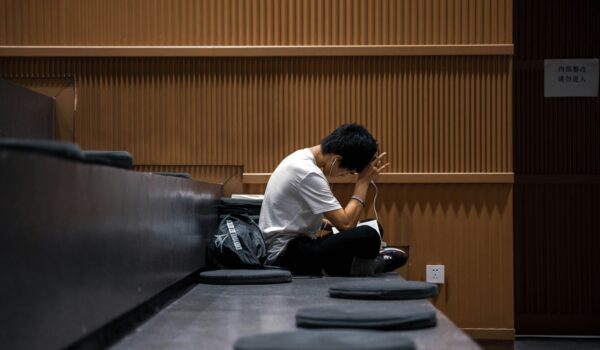
Student Anxiety: How Worrying Can Both Help and Hinder Performance
 As the stigma of mental health is beginning to decrease, more and more individuals are beginning to recognize the symptoms of common mental health issues including depression and anxiety. For students, it’s easy to experience feelings of anxiousness when trying to juggle deadlines, exams, and a personal life. But, while anxiety can be completely debilitating for some, it can also be quite useful. Here is how anxiety and worrying can both help and hinder performance.
As the stigma of mental health is beginning to decrease, more and more individuals are beginning to recognize the symptoms of common mental health issues including depression and anxiety. For students, it’s easy to experience feelings of anxiousness when trying to juggle deadlines, exams, and a personal life. But, while anxiety can be completely debilitating for some, it can also be quite useful. Here is how anxiety and worrying can both help and hinder performance.
Anxiety Can Lead to Depression
One of the most common ways that anxiety can hinder performance is by leading to depression, or vice versa. Although there are many types of anxiety disorders, the commonality of all of them is that if they are not treated, then they can lead to symptoms of depression, including hopelessness, fatigue, sadness, crying spells, and many other undesirable feelings. Understandably, being in a constant state of worry is also tiring! You’re always tense and on-guard, all while trying to maintain your student status.
Anxiety Can Disrupt Learning
If your mind is constantly racing and you find yourself worrying about past, present, and future “what-if” scenarios, it can be extremely challenging to concentrate on learning new material. For students, this obviously doesn’t make schooling any easier – which in turn becomes another worry!
So… how can anxiety help?
Not All Anxiety is Bad
For an anxious person, hearing that “not all anxiety is bad” seems like something to scoff at. But, if you really think about it, anxiety helps you in a lot of ways. First and foremost, anxiety and worry helps us to survive. It keeps you safe and alert in unfamiliar situations.
It also helps people to stay motivated to get things done on time! While perfectionism can be a hazardous trait, it does have a strong link to anxiety simply because anxiety drives people to complete and accomplish different things.
Finding Balance
Anxiety is a complex issue. With various types of anxiety and the world being filled with unique human beings, there is simply not a one-size-fits-all solution. However, understanding how your own anxiety helps and hinders your performance is the first way to begin taking the steps you need to find balance. Once you have a better idea of this, or if you need more help to figure this out, set up an appointment with your on-campus counsellor! Services are usually free to students and there are a lot of resources out there. Learning to appreciate and manage your anxiety at the same time is a difficult skill to master but it is worth it in the long run. After all, you have a full life ahead of you!
Is your increasing workload the main source of your distress? If so, check our services and let us know what we can do to help!
References:
Anxiety: Symptoms and causes. (2017, August 16). Retrieved August 20, 2017, from http://www.mayoclinic.org/diseases-conditions/anxiety/symptoms-causes/dxc-20168124
Depression and Anxiety: Two Similar Disorders that Could Not Be More Different. (2017). Retrieved August 30, 2017, from http://www.calmclinic.com/anxiety-depression
Peterson, T. J. (2014, May 08). The Link Between Perfectionism and Anxiety. Retrieved August 28, 2017, from https://www.healthyplace.com/blogs/anxiety-schmanxiety/2014/05/the-link-between-perfectionism-and-anxiety/
Symptoms of Depression. (2017). Retrieved August, 2017, from http://www.webmd.com/depression/guide/detecting-depression#1
Share:

